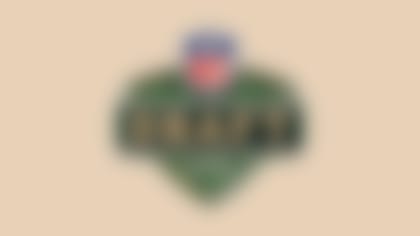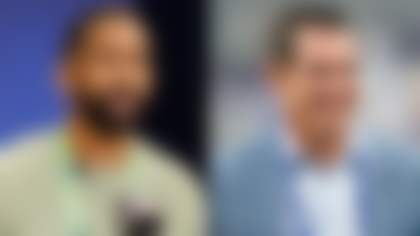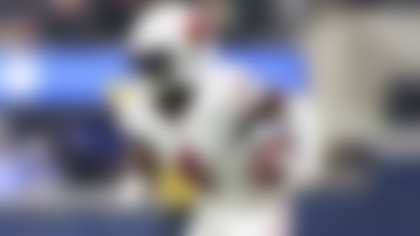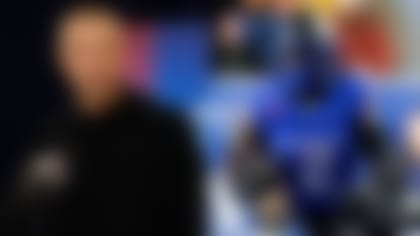Saints running back Mark Ingram, the 2011 first-round draft pick who led the Saints in carries, is done for the season, placed on injured reserve last week with a turf toe injury that required surgery. The move barely registered.
That nonchalance wasn't because the Saints have the ultimate insurance policy in quarterback Drew Brees. Pierre Thomas, Darren Sproles, Chris Ivory and New Orleans' offensive line can ram-rod in the running game as well as they can protect Brees. The Saints' running game doesn't just do enough to keep defenses honest, like those in Green Bay or New England. Running the ball is vital to how the offense functions.
Brooks: A classic matchup
The Saints' prolific offense will be tested by a tough, talented 49ers defense, Bucky Brooks writes. **More...**
In the Saints' stunning wild-card loss at Seattle last year, they were down four running backs beforehand and had two others hurt during the game. They were one-dimensional. It wouldn't seem like that would be a problem with the record-setting Brees, but the Saints need to run to make the passing game work.
That's why they drafted Ingram: They needed depth to avoid the handicap they were dealt in last year's playoffs. While drafting Ingram in the first round arguably seems like a wasted pick because the Saints are doing just fine without him, the benefit of having him as long as they did (474 yards on a team-high 122 carries) is rearing its head now.
The injury-prone Thomas, the most vital skill player on the offense other than Brees, is healthy and getting the chance to make up for lost time. He had 111 total yards and a touchdown in Saturday's wild-card victory over Detroit, using his incredible balance and sheer grit to routinely make yards and first downs when smothered by defenders.
Thomas' versatility, Sproles' ability to hit the big play with a run or a pass and Ivory's raw power help make the Saints the most unpredictable offense in the postseason. Lions linebacker Stephen Tulloch told me before the game that the Saints tipped certain things by personnel groupings, such as when Thomas lined up behind a fullback with a single tight end that most likely meant a run. Thomas had told me prior to the game that Saints coach Sean Payton actually was mixing personnel groupings the previous few weeks -- such as lining up Sproles in certain sets instead of him -- so opponents would think they were telegraphing certain things. The stage was set for the element of surprise, and it worked.
Thomas, Sproles and Ivory (none of whom rushed for more than 603 yards or five touchdowns in the regular season) combined to help the Saints total 167 rushing yards last Saturday. For the season, New Orleans averaged 133 yards per game on the ground, sixth in the league.
When they face the 49ers in Saturday's divisional playoff, yards on the ground will come harder than against the string of opponents they've blown out in the past month. The Niners own the league's top-rated run defense, allowing only 72 yards per game.
New Orleans isn't going to shy away. The Saints probably will use the screen game -- Thomas arguably is the best screen back in the NFL -- as a quasi-rushing attack if they can't budge the Niners' front. There likely will be some reverses and draws thrown in as well. The chess game never ends with the constant shuffling of runners who rarely line up in the backfield two plays in a row.
It's a steady shell game that creates the space for Brees and the Saints' record passing attack to flourish.
Follow Steve Wyche on Twitter @wyche89.



